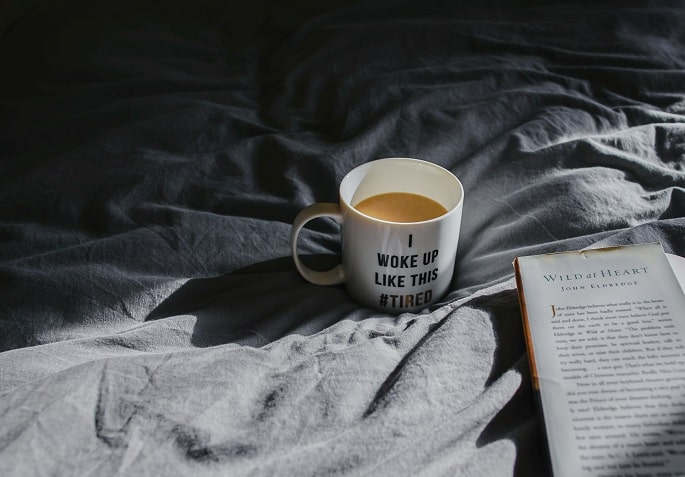I’m a multitasking addict in recovery. I multitask because I’m bored and need constant stimulation. If there’s a way to do three things at once, trust me, my brain will find it. And if there isn’t a way, my brain will invent one.

The truth is, I’ve been struggling with this for years, and I’m finally doing something to stop multitasking and learn how to focus. These are the things I’m trying right now — what’s actually helping, what’s not, and what I’m still figuring out along the way.
If you’re the same, hi — welcome to my circus. Please pull up a chair (or three, since we’re probably sitting weird anyway).
What Finally Made Me Change My Multitasking Habits
There’s always a breaking point. Mine was the day I tried to write, answer a message, check analytics, open YouTube, grab a snack, respond to an intrusive thought, and then somehow ended up watching a raccoon wash cotton candy (Shorts know I love cute animals).
That’s when I realized:
I don’t multitask because I’m productive — I multitask because my brain is bored, overstimulated, and chasing dopamine like it’s an Olympic sport.
So I decided to simplify, slow down, and refocus my attention. Not perfectly. Not aesthetically. Just… one thing at a time. (Sometimes.)
Why Multitasking Makes It Hard to Focus (and Why My Brain Still Loves It)
When I started reading actual research, everything clicked:
- The brain doesn’t multitask — it task-switches.
- Task-switching increases cognitive load, making tasks take longer to complete.
- Heavy multitaskers actually perform worse at filtering irrelevant information.
- And yet, novelty gives us a hit of dopamine, which makes multitasking feel good… even while it’s sabotaging us.
If you’ve ever felt tired, scattered, foggy, or “fake busy,” congratulations — your brain is a normal human brain reacting to too much stimulation.
Understanding this helped me drop the shame (and my ego-pride regarding my “multitasking superpower”) and start working with my brain instead of against it.
What’s Actually Helping Me Focus Right Now
These are the things that have helped me the most:
- The one-tab rule. If it’s not related to what I’m doing, it gets shut down.
- Batching tasks. Writing time is writing time. Admin time is admin time. Mixing them = chaos gremlin.
- Movement breaks. Stretching resets my attention better than caffeine.
- Starting messy. Perfection kills focus faster than distractions.
- Timers without pressure. Not Pomodoro (we’ll talk about that), but gentle “check-in” timers that help me notice when I drift.
- Deceiving myself. Yeah, lol. I put on a movie that I LOVE, watch for 10 minutes, and pause. Then I tell myself: “I know you’re dying to continue, but you can only press play again if you write for at least an hour without interruption.” This works surprisingly well!
- Instrumental music. Although I *am* a metal/punk girl, listening to some of my *favorite* (must be something I actually like!) soundtracks, such as the OST for How to Train Your Dragon and Sonic, The Hedgehog (the SNES game), has been helping me immensely.
These aren’t revolutionary. But they’re working — because they’re realistic for a dopamine-hungry brain.
Creating a Cozy Workspace Actually Helped My Focus

I used to think “make your workspace cute” was Pinterest nonsense. 💀
Then I created a cozy corner by accident… and suddenly my focus improved.
Here’s what made a difference:
- Color: I added colors that make me feel calm and motivated, rather than overstimulated (my office is all wood, black, and dark green — not gamer-setup-shining neon, lol).
- Textures: Soft blanket, smooth desk, warm mug — sensory comfort matters.
- Lighting: Warm lamps and indirect light keep my brain from going into “fight or nap” mode.
- Noise: Instrumental music (soundtracks, jazz, metal, classical, according to the mood), rain apps, or white noise, depending on the task.
- Things I love all over my home office: My books, action figures, images of my cats, posters, and vinyl records.
- Smell: Might be weird, but natural incenses actually make me more relaxed and concentrated! (I heard they can be bad for both cats and humans, so I use them in moderation, and only close to open windows.)
- WINDOWS: Please. Maybe I’m a bit claustrophobic, but I can’t concentrate in a room without windows. It drives me crazy.
It’s like tricking your environment into parenting your attention span.
Related: 7 Reasons Why You Can Never Be Productive At Home
Rewarding Myself Works Better Than Shaming Myself
For years, I tried the “just do it!” method. Shocker: yelling at myself didn’t increase my productivity.
Rewarding myself did.
Now I treat my brain like a golden retriever that loves praise and snacks:
- Do a task → get a treat.
- Write for 20 minutes → scroll guilt-free.
- Finish a boring admin job → you get to open another Pokémon TCG pack (I love the dopamine of not knowing which card I’ll get).
It sounds silly. It works ridiculously well.
Physical Pain Makes Me 10x More Distracted (and Prone to Multitasking)

Here’s something I’ve been refusing to admit out loud: when my body hurts, my focus tanks. Like, dramatically.
As a writer, I basically live in a chair — which means the chair has to be REAAAAALLY comfy. Not “Instagram aesthetic” comfy. I mean, “my spine won’t file a complaint” comfy.
And because I train martial arts, my back and neck are usually fine unless I skip a week… which I sometimes do when I’m drowning in work. And listen: I’m 30 now. One skipped week and suddenly my entire upper body feels like it’s held together by crunchy audio.
Pain = distraction.
Discomfort = distraction.
Bad posture = distraction.
When my back hurts, I’m 500% more likely to wander off mentally, open random tabs, or start scrolling just to avoid sitting still. So now I treat physical comfort as part of my focus strategy:
- A chair that doesn’t hate me
- A cushion or lumbar support
- Stretching during breaks
- Warm compresses on my neck if it’s acting cursed
- Getting back to training even when I’m busy, because future-me deserves to be pain-free
My brain focuses better when my body isn’t screaming for attention. Who knew.
I Tried the Pomodoro Technique… and Honestly?
Everyone swears by the Pomodoro technique. I thought I’d love it. I did not love it.
The fixed 25-minute sessions stressed me out. The alarm ripped me out of flow. The ticking clock made me feel supervised by an imaginary productivity manager.
But I did keep some elements:
- Working in “focus waves”
- Taking intentional breaks
- Stopping before burnout
- Using timers as gentle guides instead of strict rules
So no — Pomodoro didn’t work for me. But pieces of it did.
It’s Not About Perfect Focus — It’s About Reducing the Scatter
I’m not trying to become a perfectly consistent productivity robot. I *just* want less mental noise, more peace, and to finish my job faster (so I can have more free time).
If multitasking has been your default coping mechanism, unlearning it won’t happen overnight. But every small shift reduces the scatter. And honestly? That’s already a win.
How’s *your* journey going? Let’s exchange cards in the comments below!
FAQ: How to Stop Multitasking
Not exclusively, but it’s very common in people with ADHD. ADHD brains crave novelty and dopamine, which makes task-switching feel rewarding in the moment. That said, plenty of non-ADHD people multitask a lot too — especially if they’re overstimulated, bored, stressed, or working in chaotic environments.
Nope. It’s not a sign of high or low IQ — it’s mostly a sign of how your brain handles stimulation. Research actually shows that people who multitask frequently tend to perform worse on memory, attention, and filtering tasks. Being smart doesn’t make your brain magically better at switching tabs 24/7.
Mental overload feels like your brain’s RAM is full. Common symptoms include:
✔️ forgetfulness
✔️ irritability
✔️ trouble finishing tasks
✔️ brain fog
✔️ feeling “scatterbrained”
✔️ trouble switching back into focus mode
✔️ exhaustion even if you didn’t do much
✔️ increased mistakes
If your brain feels like 27 tabs with music playing from somewhere… that’s overload.
For complex tasks, no. The brain doesn’t process two demanding things simultaneously — it rapidly switches between them. The only true multitasking humans can do is pairing an automatic task (like walking or chewing) with a cognitive one. Anything else is task-switching, which drains focus and energy.



